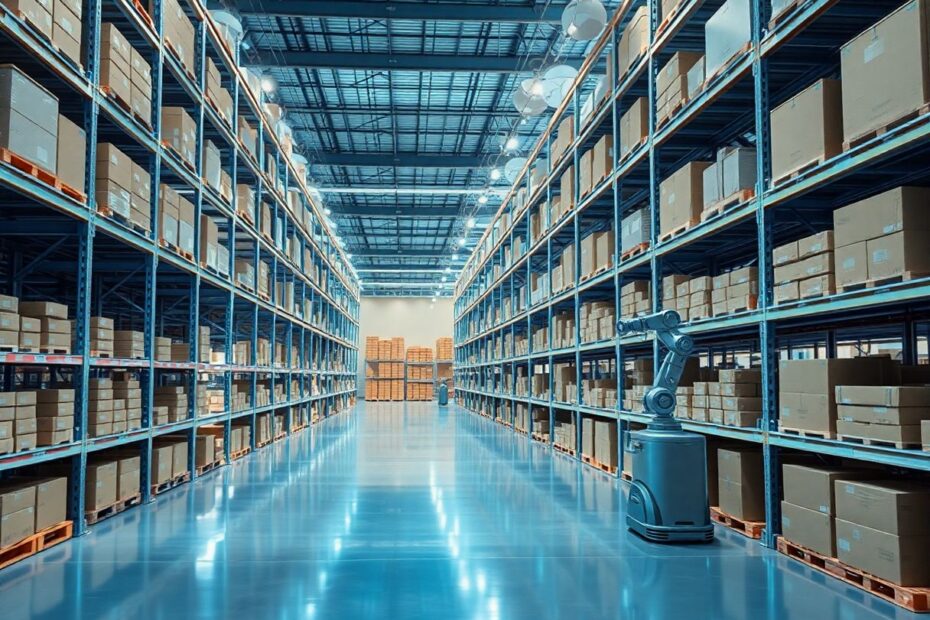In today's rapidly evolving business landscape, wholesale distribution stands as a critical pillar connecting manufacturers with retailers and, ultimately, consumers. As we approach 2025, the wholesale distribution sector is undergoing significant transformations, presenting both challenges and opportunities for businesses across various industries. This comprehensive guide delves into the intricacies of wholesale distribution, offering valuable insights and strategies for success in this dynamic field.
Understanding the Fundamentals of Wholesale Distribution
Defining Wholesale Distribution
Wholesale distribution is the process of purchasing products in large quantities from manufacturers and selling them in smaller quantities to retailers or other businesses. As intermediaries in the supply chain, wholesale distributors play a crucial role in facilitating the efficient flow of goods from production to consumption.
The Multifaceted Role of Wholesale Distributors
Wholesale distributors serve several essential functions in the supply chain:
- Bulk purchasing and inventory management
- Warehousing and storage solutions
- Breaking bulk into smaller, manageable quantities
- Transportation and logistics coordination
- Market analysis and strategic product selection
- Customer service and ongoing support
Diverse Types of Wholesale Distributors
The wholesale distribution landscape encompasses various specialized roles:
- Full-service wholesalers: Offering a comprehensive range of services
- Limited-service wholesalers: Providing a more focused set of offerings
- Specialty wholesalers: Concentrating on specific product categories or industries
- Cash-and-carry wholesalers: Catering to small retailers with immediate needs
- Drop shippers: Facilitating direct shipments from manufacturers to retailers
- Rack jobbers: Specializing in displaying and managing in-store merchandise
The Evolving Wholesale Distribution Landscape in 2025
Transformative Trends Shaping the Industry
E-commerce Integration
- According to a 2023 McKinsey report, B2B e-commerce sales are projected to reach $3.6 trillion by 2025, representing a 17% compound annual growth rate.
- Wholesale distributors are increasingly adopting online platforms to expand their reach and streamline operations.
Artificial Intelligence and Machine Learning
- A study by Accenture found that AI could boost profitability in wholesale and retail by 59% by 2035.
- Advanced technologies are being leveraged to optimize inventory management, demand forecasting, and customer insights.
Sustainability Focus
- The 2022 State of Supply Chain Sustainability report revealed that 80% of companies are maintaining or increasing their commitment to supply chain sustainability.
- Eco-friendly practices and products are becoming paramount for both consumers and businesses.
Personalization and Customization
- A Salesforce study indicated that 66% of customers expect companies to understand their unique needs and expectations.
- Distributors are offering more tailored solutions to meet specific customer demands.
Data-Driven Decision Making
- According to Deloitte, companies with the strongest analytical capabilities are 2.2 times more likely to outperform their peers.
- Analytics and big data are being harnessed to refine business strategies and operational efficiency.
Persistent Challenges Facing Wholesale Distributors
- Intensified competition from direct-to-consumer brands
- Escalating operational costs, including labor and transportation
- Frequent supply chain disruptions and volatility
- Rapidly evolving consumer preferences and expectations
- Complex regulatory compliance requirements
Leading Wholesale Distributors in 2025
1. Costco Wholesale Corporation
- 2022 Revenue: $226.95 billion
- Key Strengths: Membership-based model, diverse product range, and efficient operations
2. Sysco Corporation
- 2022 Revenue: $68.64 billion
- Focus Areas: Food service distribution, technology solutions, and consulting services
3. Amazon Business
- Estimated 2022 GMV: $35 billion
- Advantages: Vast product selection, advanced logistics network, and B2B-focused features
4. Cardinal Health
- 2022 Revenue: $181.36 billion
- Specialization: Healthcare products and pharmaceuticals, with a strong focus on digital transformation
5. Dot Foods
- 2022 Revenue: Approximately $10 billion
- Innovations: Expanded product range and cutting-edge technology implementation
Strategies for Success in Wholesale Distribution
Embrace Digital Transformation
To maintain a competitive edge in 2025 and beyond, wholesale distributors must:
- Implement robust e-commerce platforms with mobile-friendly interfaces
- Utilize advanced inventory management systems powered by AI and IoT
- Leverage predictive analytics for demand forecasting and pricing optimization
- Adopt automation technologies for warehouse operations and order fulfillment
Elevate Customer Experience
- Offer personalized product recommendations based on purchase history and preferences
- Provide omnichannel support options, including chatbots and self-service portals
- Implement loyalty programs and incentives tailored to B2B customers
- Continuously gather and act on customer feedback through surveys and analytics
Optimize Supply Chain Management
- Diversify supplier relationships to mitigate risks and ensure resilience
- Implement real-time tracking and visibility solutions across the entire supply chain
- Explore strategic partnerships with third-party logistics providers for enhanced efficiency
- Invest in sustainable transportation methods, including electric vehicles and route optimization
Expand Product Offerings and Services
- Identify emerging product trends and niche markets through market research
- Consider developing private label or exclusive product lines to increase margins
- Offer value-added services such as product training, installation, or maintenance
- Explore subscription-based models for recurring revenue streams
Invest in Employee Development
- Provide ongoing training and education opportunities in emerging technologies and industry trends
- Foster a culture of innovation and adaptability through cross-functional collaboration
- Implement performance-based incentives aligned with company goals
- Prioritize employee well-being and work-life balance to attract and retain top talent
The Future of Wholesale Distribution: Emerging Technologies and Market Dynamics
Transformative Technologies
Blockchain
- Enhancing transparency and traceability in the supply chain
- Facilitating secure and efficient transactions between partners
Internet of Things (IoT)
- Improving inventory management through smart shelves and RFID tags
- Enabling predictive maintenance for warehouse equipment and vehicles
Augmented Reality (AR)
- Streamlining order picking and warehouse operations
- Enh
